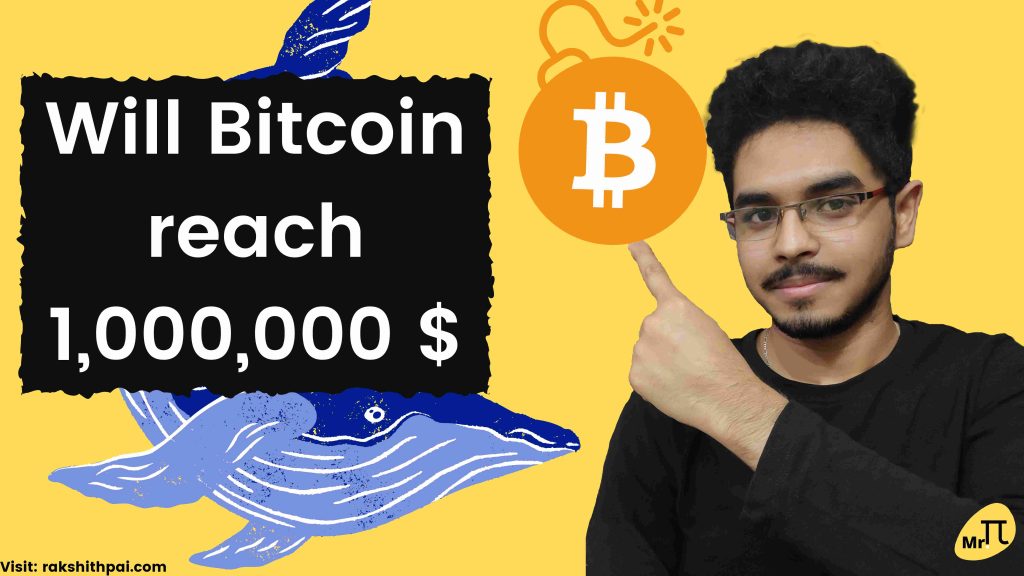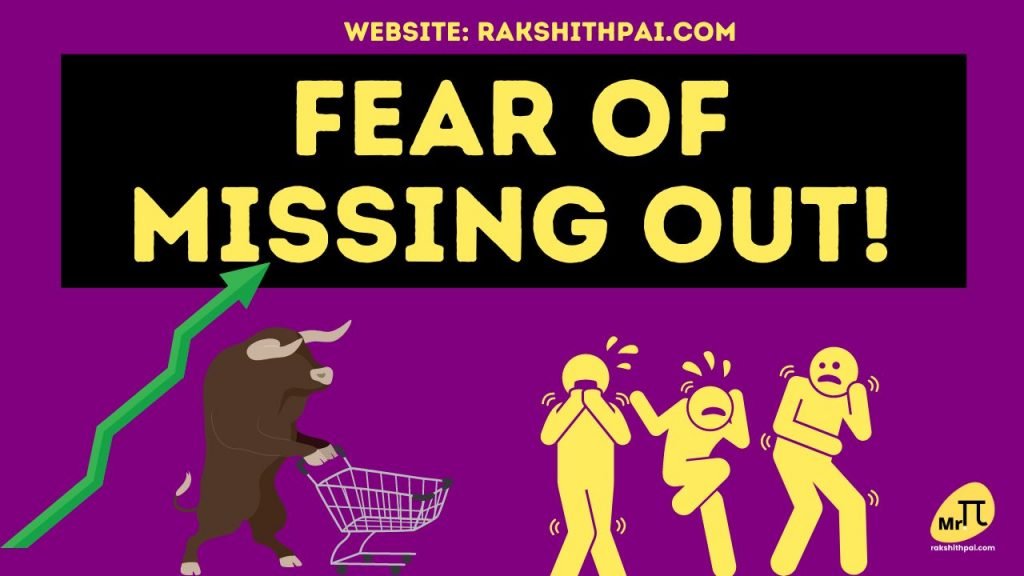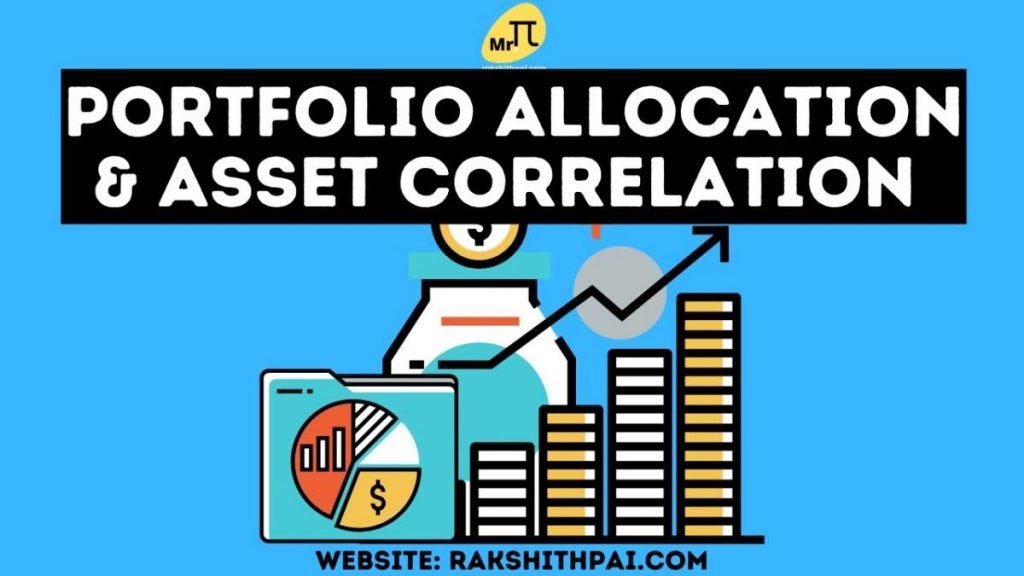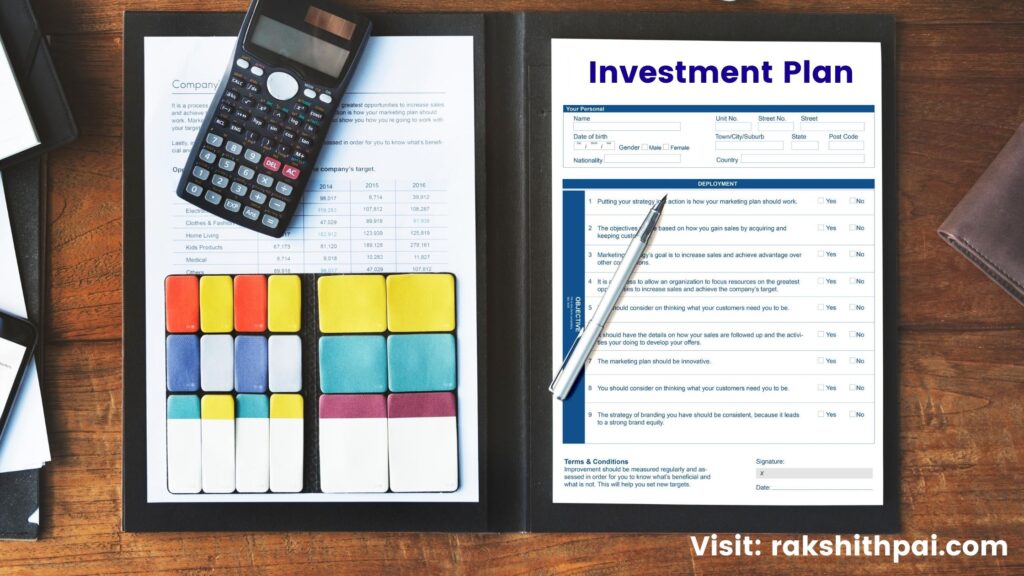Table of Contents
What is Debt?
Personal debt is a debt for which you, as an individual, are legally accountable. In this context, “personal” simply means “non-business,” as when you and your spouse take out a loan to buy a house, car, educational loan, etc.
Individual debt can also be either secured or unsecured. When you put up collateral (such as security) to get a loan, it’s called “secured debt.” Unsecured debt is based only on your word that you’ll pay it back. The use of personal debt to finance expenditures rather than capital expenditures is inevitable.
Personal debt is also a common problem due to unforeseen events like losing a job or unfortunate events such as medical expenses. Even when people work full time, their pay often isn’t enough to cover such unexpended expenses. And, when people don’t have the discipline and knowledge to handle their money well, they often find themselves in debt.
What is Debt Financing? Features, Advantages & Disadvantages:
How to have a Debt-Free Life?
Living Debt free is not only good for your wealth, but also for your health. Hence, it is of utmost necessity for each and every individual to thrive to live debt free or at least take upon a manageable debt. The following are some tips & suggestions for you;
Build Savings
Saving money for emergency periods is highly underrated. People often tend to live pay-check to pay-check. Infact, making barely enough and living on the edge has become a financial pandemic of its own.
Credit
Credit is a tool, if used wisely, can be a great help for individuals. But, unfortunately, 90% of individuals with credit cards and such other facilities do not know how to take full help of the same. If you are one of those who do not know how to use credit, I suggest you cut down your credit consumption.
Consume less
Spend that which you can pay. Our economy is mainly consumption driven. But, that doesn’t mean, we consume more than we can pay.
Living on tomorrow’s income is one way to put it. Many do it without any knowledge of doing it. To make yourself realize, just take note of all the purchases you’ve made in the past 3 months, now see what are those and how useful were your purchases.
How to Avoid Debt?
If you follow these five rules, you’ll be less likely to get into too much debt and risk losing your financial stability.
50-30-20 Rule
Putting the rule into effect requires relatively little effort. Your cash flow is split into three categories for this exercise. Needs account for 50% of the budget, wants account for 30%, and savings and investments account for 20%. Everything will be put into predetermined bins, and you can decide what to do within those bins.
Such planning will help you manage your utility expenses, investment, and leisure spending. For more information, CLICK HERE!
The 50/30/20 Rule of Budgeting. Its Features & Importance Explained:
Emergency Fund
You should always have some spare cash on hand, and this is the money you should put away in an emergency fund. Things like auto repairs, house repairs, medical costs, and income loss are classic examples.
Such expenses come at any time. Especially, to overcome unfortunate times, one must have an emergency fund.
Insurance
Having health insurance prevents you from having to use your funds to pay for unexpected medical expenses. The quality and ease of life may quickly become prohibitively expensive due to the unpredictability of medical emergencies and, with the ever-increasing cost of healthcare, it is the cost of medical care without health insurance that can quickly deplete personal funds.
To know more about Medical Insurance, Check this article – CLICK HERE!
SIP
A Systematic Investment Plan (SIP) is a tool provided by mutual fund companies to help their clients invest regularly and consistently. Investors can choose a mutual fund scheme and set up a systematic investment plan (SIP) to invest a certain amount of money at regular intervals. Intervals can be on a weekly, monthly, quarterly, semi-annual, or annual basis. It can also be done whenever the investor pleases but at a pre-defined interval.
To know more about SIP or Systematic Investment Plan, Check this article – CLICK HERE!
What is SIP? Its Types, Benefits & Drawbacks explained
Side Hustle
Extra income is always welcome, and I believe that everyone should have a second source of income. You can reach your financial goals, like paying off debt or saving for retirement, faster if you do something on the side to make a little extra money each month.
To know more about Ways to Make Money Online, Check this article – CLICK HERE!
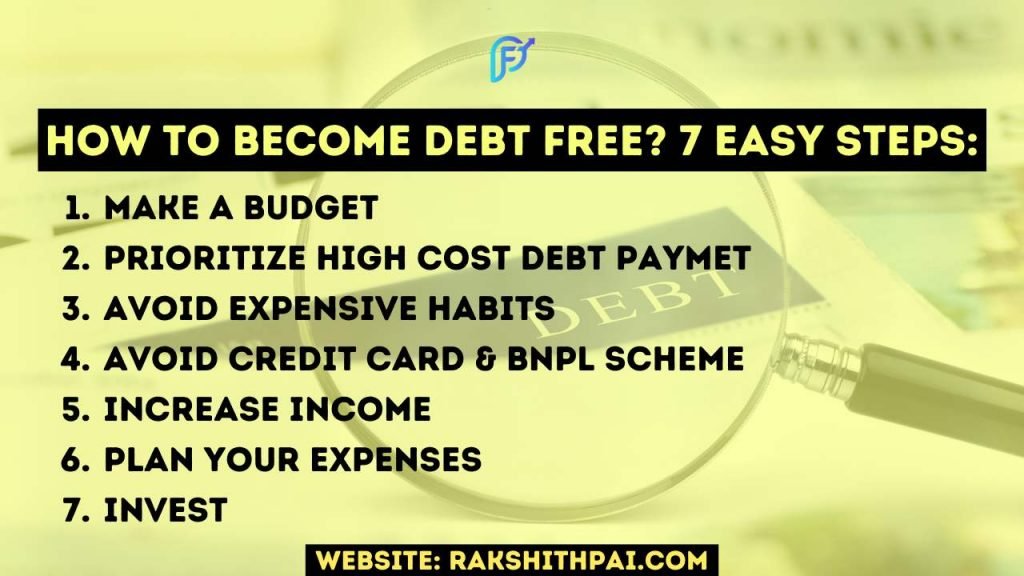
10 Steps to Become Debt-Free:
Make Budget
Examine your monthly budget carefully to get started. To keep tabs on your spending, you might want to download budgeting software. The finest budgeting applications often provide either a free version or a free trial period followed by a modest monthly price. You may use these applications to help you find ways to save money that you can put toward paying down your debt.
Spending reductions of any size will help. If you can find Rs. 1,000 every month to reduce from your regular budget, you will have Rs. 12,000 at the end of a year to apply toward your financial obligations.
Maintain Spreadsheet
The complexity of a spreadsheet is entirely up to the user. You may use it to keep track of your repayments to creditors and to revise your account balances accordingly. One major advantage is that it helps maintain a tidier financial recordkeeping system. In addition, it works well with various monitoring systems.
Be Informed
Be informed regarding the investment options available in your vicinity. Be informed regarding the debt you have taken or are planning to take upon. Being informed is the first safe step to take in Personal Finance.
Prioritize Debt
At this point, you have officially started making progress toward your goal of debt freedom. Prioritize those loans that charge high interest on the debt.
Because it’s best to pay off these loans first if you want your EMI payments to go down by a lot. Unpaid balances on credit cards, personal loans, and other forms of unsecured debt will dominate this category. Put some money aside and go to work on the loan prepayments of the rest of the debts.
Avoid Expensive Hobbies
Have you checked your bank account lately to see whether you actually have spent it on expensive items, the need for which is very slim? You can’t be serious about budgeting if you are spending excessively on your hobbies!
Do check your bank statement at frequent intervals. Check for those expenses that you’ve incurred but wish you hadn’t. This is not a practice to make you feel guilty about your spending.
In fact, this is to make you understand how financially mature you are. Remember, the first step to financial freedom starts with saving. And, in order to save, one must go through every option available in terms of cutting expenses.
10 Best Ways to Make Money Online:
Avoid Credit card
To really get out of debt, you need to stop treating debt like a way of life. You’ll find plenty of suggestions online from financial experts advising in favor of the use of credit cards. But not many people really understand how credit works, and even fewer make the best use of it.
Wherein, the vast majority still do not know how to use credit cards. You could be one of them. The only thing credit cards accomplish is perpetuate the debt cycle. So, in regards to the 90% of credit card holders and those who use the “Buy Now, Pay Later” (BNPL) system, it is suggested to throw away your credit cards and BNPL accounts and forget about them.
Raise Income
You can raise your income by asking for a raise or going for a side hustle. Remember, if you don’t ask, the answer will always be no!
If you wish to ask for a raise, which I absolutely suggest you do. Take your time, make yourself available for the work, be visible and try to be as hardworking as possible in order to increase your chance of getting approval for a raise.
As far as a Side hustle is concerned, I suggest you read this article, CLICK HERE!
Plan your Expenses
Prepare a plan of action and stick to it. While window shopping, check your spending with the calculator software on your phone to avoid going overboard. Especially when you frequently buy things on a whim! It’s possible to pick up your online grocery purchase at the store’s curbside.
Plan where you spend, what you spend it on, and when you spend it.
Concentrate on Health
Health is the most precious of all Wealth. Hence, it is said, “Health is Wealth”. Prioritize your Health, both Mental and physical. If your work and personal life are affecting your health, you are supposed to make the required changes.
Remember, no one individual has ever regretted having good health. I personally know a few who do regret having the huge wealth they have. Wealth has a knack for trapping us in a unique manner.
Invest
I cannot stress enough this aspect. The best way to attain wealth is to Save as much as possible, Invest the saved money and repeat the process as far as feasible.
Saving money requires a certain kind of discipline. But, what really makes you rich is investing the money.
Conclusion:
Creating a reasonable budget and keeping track of spending is the single most effective strategy for paying off consumer debt.
The general consensus among financial experts is that you should prioritize paying off the loan with the highest interest rate first, allocating as much of your available funds as possible there, while still making at least the minimum payments on all of your other debts.
However, if all other options are lost, you can get a new financial start or reduce your debt load through options including bankruptcy, debt negotiation, debt settlement, and refinancing.
But, while using these strategies, you may be able to get rid of some of your debt, but it comes at a cost. change your interest rate due to an impact on your credit score.
For More Information, Check this Video:
Disclaimer: All the information on this website is published in good faith and for general information purposes only.


